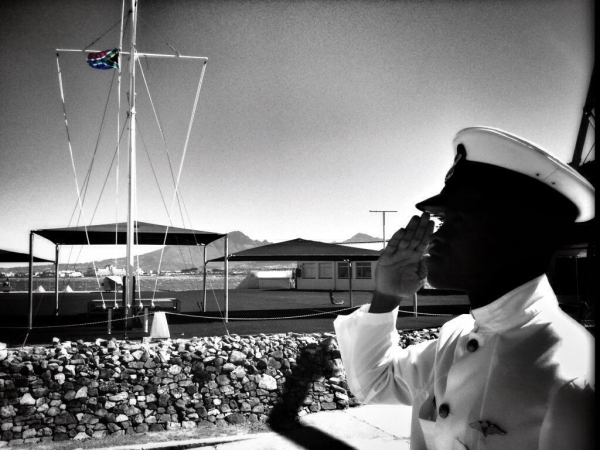People with HIV should be able to fight for their country

There is no reason people with HIV shouldn’t be soldiers, says Tim Flack, who served in the navy and is the Western Cape representative for the South African National Defence Force Union.
I was 18 years old in 2007 when I attended the pre-selection phase for joining the navy. There were roughly 400 of us in the hall at a Durban military base. We were told that rapid HIV and hepatitis tests were to be carried out on us. If we tested positive, we should then go for a “proper blood test”, but we would not be able to join the defence force.
When the results of the rapid tests came back, names were read out publicly and we were divided into two groups. Nearly half had to leave immediately. I asked a girl, who was visibly upset why she was leaving.
She responded, “They said to me I’m HIV-positive.”
No counselling was offered. You were just told that you more than likely had HIV, so good-bye. In one instant she was transformed from an excited potential recruit for the navy, looking forward to a lifelong career, into someone that was cast aside like a toy a child no longer wanted to play with.
In May 2008, the AIDS Law Project (ALP), now known as SECTION27, represented the South African Security Forces Union (SASFU) and three people living with HIV in the North Gauteng High Court, against the SANDF to challenge the exclusion of individuals living with HIV. The legal proceedings forced the SANDF to amend its health classification policy with the assistance of the ALP.
The SANDF’s old health classification policy excluded people living with HIV from recruitment, external deployment and promotion in the military. The Court declared this policy unconstitutional because it violated the rights of aspirant and serving members of the SANDF to, among other rights, equality and dignity.
This resulted in a new improved policy in 2009 in which the blanket discriminatory policy was supposed to have been discontinued.
Five years later, SECTION27 was back before the same court, again challenging discrimination by the SANDF against people with HIV. This time two women applicants were joined by SASFU and the South African National Defence Union (SANDU) as co-applicants in the case.
The case was heard on 29 July at the North Gauteng High Court. The two applicants, represented by SECTION27 lawyers, appeared in court to challenge the SANDF employment discrimination based on their HIV status. The women had undergone two years of training but did not have their contracts renewed after they tested HIV-positive. They are calling for the SANDF to not discriminate against them, and comply with the May 2008 court order. The Treatment Action Campaign also supported the applicants.
The applicants argued that the military’s health classification discriminates against HIV-positive individuals by refusing to admit them into their Core Service System and their Military Skills Development System without taking into account their state of health or competence.
Some of the SANDF arguments were ignorant. They had a preconceived idea that if you are HIV-positive you are unhealthy. They argued that people with HIV are chronically ill. This simply isn’t true, not with modern medicine.
Judgement has been reserved.
So what is the problem here?
Excluding someone from being employed or ending someone’s employment due to their HIV status violates their rights to equality and dignity. If people with HIV were chronically sick, then there would be a case for preventing them from doing some kinds of jobs which would either compromise their health further, or their health would prevent them from doing. But HIV is a manageable chronic disease. Properly dealt with, people with HIV need not get sick more frequently than people without HIV.
People with this virus can monitor their immune system. The way this is done is by measuring the CD4 count. Once a person’s CD4 count reaches a certain point —long before AIDS— he or she can start antiretroviral treatment, which is available free in the public health sector and at reasonable prices in the private sector. Eventually almost all people with HIV will need to start antiretroviral treatment. These medicines reduce the amount of HIV in the body, so that the immune system can function properly. This allows people with HIV to live healthily with almost normal life-expectancy.
Nowadays, anyone who knows their HIV status and manages their infection properly need not get ill, at least not from HIV. People with HIV run the Comrades, cycle the Argus and serve as soldiers. There is no reason the SANDF should discriminate against someone because he or she has this virus.
Thanks to Violet Kaseke from SECTION27 who assisted with the legal explanation in this article. The author takes sole responsibility for any errors.
Support independent journalism
Donate using Payfast

Don't miss out on the latest news
We respect your privacy, and promise we won't spam you.
Next: Fighting for decent toilets in Gauteng schools
Previous: Heideveld residents march against recent gang violence

This article is licensed under a Creative Commons Attribution-NoDerivatives 4.0 International License.
